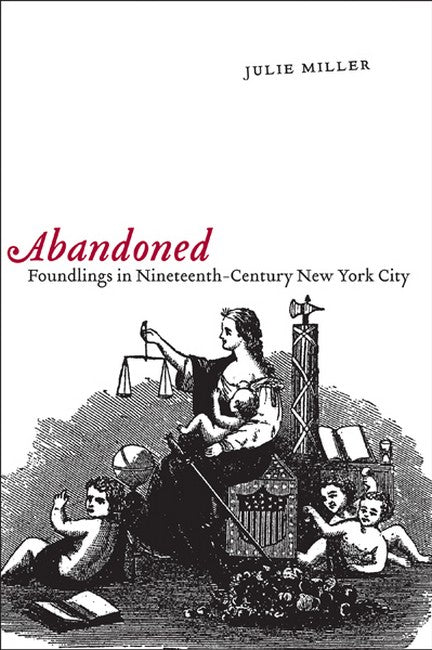Two interesting items: The author's article in New York Archives A letter regarding foundlings in The Riverdale Press In the nineteenth century, foundlings children abandoned by their desperately poor, typically unmarried mothers, usually shortly after birth were commonplace in European society. There were asylums in every major city to house abandoned babies, and writers made them the heroes of their fiction, most notably Charles Dickens's Oliver Twist. In American cities before the Civil War the situation was different, with foundlings relegated to the poorhouse instead of institutions designed specifically for their care. By the eve of the Civil War, New York City in particular had an epidemic of foundlings on its hands due to the rapid and often interlinked phenomena of urban development, population growth, immigration, and mass poverty. Only then did the city's leaders begin to worry about the welfare and future of its abandoned children. In Abandoned, Julie Miller offers a fascinating, frustrating, and often heartbreaking history of a once devastating, now forgotten social problem that wracked America's biggest metropolis, New York City. Filled with anecdotes and personal stories, Miller traces the shift in attitudes toward foundlings from ignorance, apathy, and sometimes pity for the children and their mothers to that of recognition of the problem as a sign of urban moral decline and in need of systematic intervention. Assistance came from public officials and religious reformers who constructed four institutions: the Nursery and Child's Hospital's foundling asylum, the New York Infant Asylum, the New York Foundling Asylum, and the public Infant Hospital, located on Randall's Island in the East River. Ultimately, the foundling asylums were unable to significantly improve children's lives, and by the early twentieth century, three out of the four foundling asylums had closed, as adoption took the place of abandonment and foster care took the place of institutions. Today the word foundling has been largely forgotten. Fortunately, Abandoned rescues its history from obscurity.

